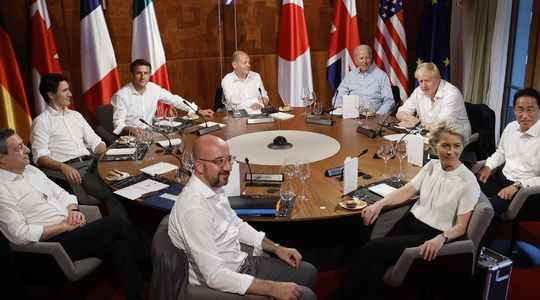Unveiled just a year ago, during the G7 in Carbis Bay (British Cornwall), forgotten with the war in Ukraine, it was resurrected this Sunday, June 26, in Germany, during the last summit of the seven industrialized countries. Announced by President Biden, the “Global Infrastructure Partnership” is intended to be historic: 600 billion dollars dedicated to emerging countries, in order to help them improve their health system or their electricity networks.
The objective, not avowed, of this “Marshall plan for development” is clear: to offer low-income countries an alternative to the Silk Roads – these pharaonic projects (bridges, highways, ports) that the Chinese are building in selected countries for their mineral resources or their strategic location, such as Djibouti. Since 2013, Beijing has granted more than 1000 billion dollars in loans, on terms so draconian that they often place its debtors in the inability to repay their debt.
Luxury VRP
Facing Beijing, the Westerners had a shot to play. To seduce these emerging countries and get them out of the Chinese field of influence, Western leaders have improvised, this June 26, luxury VRP: “You have the choice [entre Pékin et les démocraties]“, pleaded Ursula von der Leyen, the head of the European Commission. “We offer better options”, boasted Joe Biden. Such as the “transparency” of procedures and respect for the environment.
The intention is beautiful, but will it be completed? “On both sides of the Atlantic, it is very difficult to implement this type of program,” criticizes François Godement, Asia adviser at the Institut Montaigne. Like the connectivity project with Asia, launched with a bang by Brussels in 2018, which yielded nothing concrete. The reason ? “Too much compartmentalization within the institutions, which prevents any global view.”
Pointillism
In short, Westerners do a lot of things, but in a “pointillist” and uncoordinated way. “Opposite, the Chinese focus on emblematic projects, bring them to completion and communicate thoroughly,” asserts Antoine Bondaz, researcher at the Foundation for Strategic Research.
Hence the American desire to group Western initiatives under the same banner. It is still necessary to go beyond the announcement effect and specify the content, still very vague, of this “Global Partnership for Infrastructure”. Starting by finding him a better selling name?
